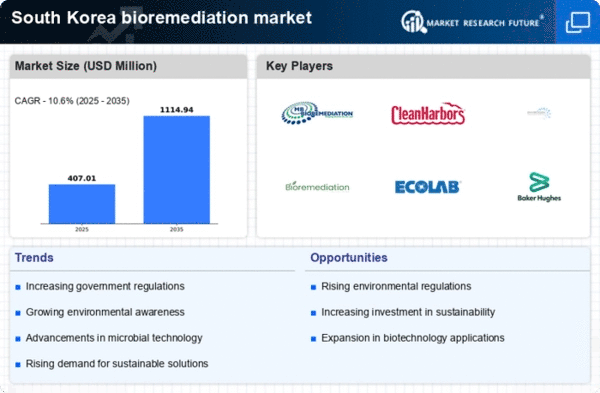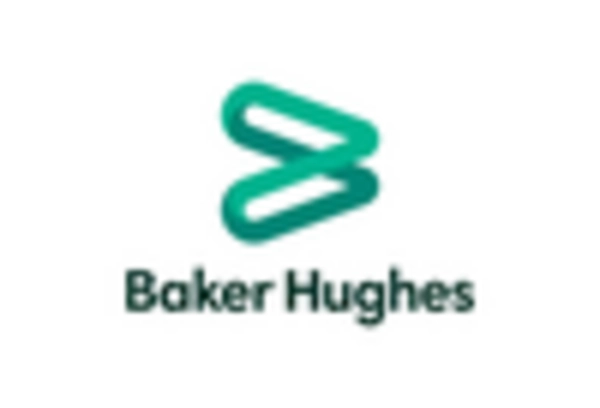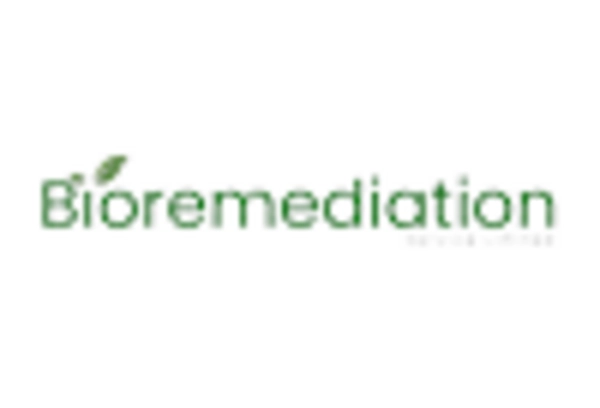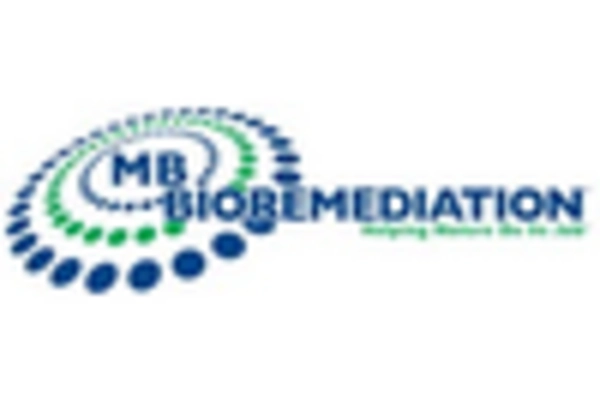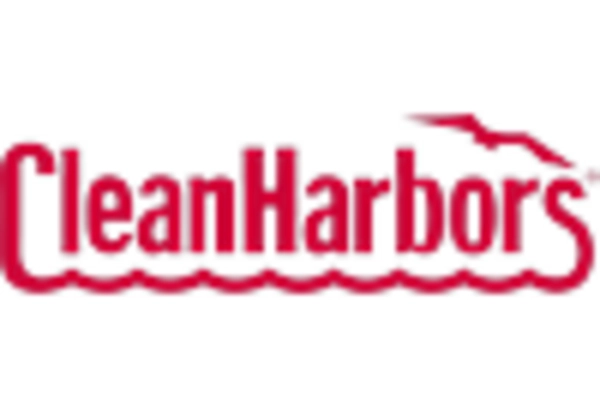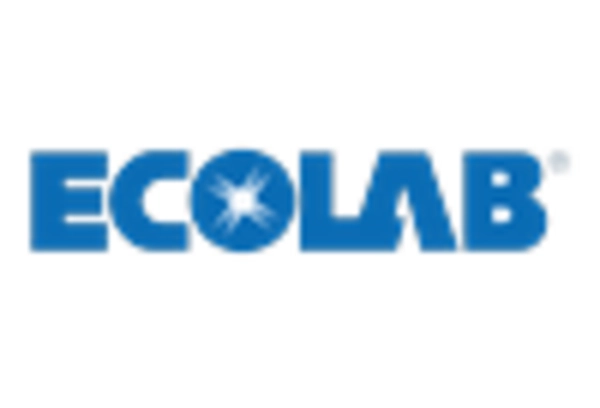Public-Private Partnerships
The establishment of public-private partnerships (PPPs) in South Korea is emerging as a vital driver for the bioremediation market. These collaborations between government entities and private companies facilitate the sharing of resources, expertise, and funding for environmental projects. In 2025, it is anticipated that PPPs will account for approximately 30% of all environmental remediation projects in the country. Such partnerships enable the implementation of large-scale bioremediation initiatives, which may not be feasible for individual entities. By pooling resources, stakeholders can enhance the effectiveness of bioremediation efforts, thereby accelerating the growth of the bioremediation market. This collaborative approach is likely to yield innovative solutions to complex environmental challenges.
Industrial Waste Management Needs
The growing volume of industrial waste generated in South Korea is a significant driver for the bioremediation market. As industries expand, the challenge of managing hazardous waste becomes more pronounced. In 2025, it is estimated that industrial waste generation will reach 150 million tons, necessitating effective treatment solutions. Bioremediation offers a cost-effective and environmentally friendly approach to managing this waste. The ability to utilize microorganisms to degrade pollutants presents a viable alternative to traditional waste disposal methods. Consequently, industries are increasingly turning to bioremediation technologies to address their waste management needs, thereby propelling the growth of the bioremediation market.
Research and Development Investments
Investment in research and development (R&D) within the bioremediation market is crucial for fostering innovation and improving existing technologies. South Korea has recognized the importance of R&D in environmental technologies, with government and private sector investments projected to exceed $200 million in 2025. This funding is likely to enhance the efficacy of bioremediation methods, making them more attractive to industries facing contamination challenges. Furthermore, advancements in genetic engineering and microbial applications could lead to the development of more efficient bioremediation agents. As a result, the bioremediation market is expected to benefit from these innovations, potentially increasing its market share in the broader environmental services sector.
Environmental Regulations and Compliance
The increasing stringency of environmental regulations in South Korea is a pivotal driver for the bioremediation market. The government has implemented various laws aimed at reducing pollution and promoting sustainable practices. As industries face mounting pressure to comply with these regulations, the demand for bioremediation solutions is likely to rise. In 2024, the South Korean government allocated approximately $500 million to support environmental cleanup initiatives, which directly benefits the bioremediation sector. This financial backing indicates a commitment to enhancing environmental quality, thereby fostering growth in the bioremediation market. Companies are increasingly investing in bioremediation technologies to meet compliance standards, which may lead to a more sustainable industrial landscape.
Growing Urbanization and Land Development
The rapid urbanization and land development in South Korea are driving the demand for bioremediation solutions. As cities expand, previously contaminated sites require remediation to ensure safe and sustainable development. In 2025, urban areas are projected to cover over 80% of the country's land, increasing the need for effective cleanup methods. Bioremediation offers a practical solution for restoring contaminated land, making it suitable for residential and commercial use. The ability to rehabilitate these sites not only supports urban development but also contributes to environmental sustainability. Consequently, the bioremediation market is likely to experience growth as urban planners and developers seek efficient remediation strategies to address contamination issues.


